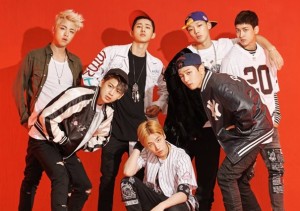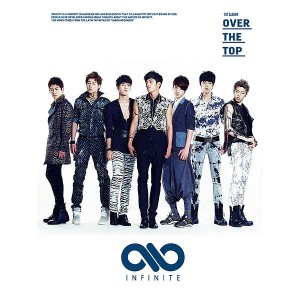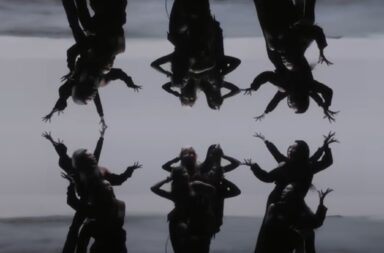 In K-pop, we often get a number of themes that is repeated: love, devotion, heartbreak, apologies, relationships, the opposite sex, the act of sex itself, and so on. It’s understandable — these are universal themes that will appeal to plenty of people. One such theme that does not fall into these categories in the same way, and yet is universal as well, is possessiveness.
In K-pop, we often get a number of themes that is repeated: love, devotion, heartbreak, apologies, relationships, the opposite sex, the act of sex itself, and so on. It’s understandable — these are universal themes that will appeal to plenty of people. One such theme that does not fall into these categories in the same way, and yet is universal as well, is possessiveness.
How, one might ask. I would argue that each song that finds it’s foundation on a possessive word, such as ‘I’ or ‘Mine,’ has another theme all together. It could be claiming someone as ‘mine,’ claiming yourself as your own person (as we will see later,) and so on. In a way, the possessiveness is a sub theme — it seeks to enhance the main theme of the given song, this main theme fitting into the various universal themes. It is not something that automatically comes to mind, as the theme that people will identify with is different, and yet it is possessive nonetheless in a more abstract sense.
One such song that fits this description is Taeyeon‘s solo debut single, “I.” The main theme of the song is definitely about SNSD‘s leader finding herself after all the turmoil and chaos that comes with being the leader of what is arguably the biggest K-pop girl group. This comes especially since it has been hinted that Taeyeon has had bouts of depression, so the joyful and uplifting tone of her solo debut is wonderful to hear.
Yesterday, I was alone
Countless gazes
Falling tears
I withstood another day againYesterday, that was a close call
All of the words that poured out
It embraced me, who was shaking, again
 Here, we see her mention the hardships that she has had to face, the challenges that repeatedly came her way. But in the melody of the track which compliments the hopeful message of the song, the lyrics come to an end with Taeyeon finding herself — having her own possession of self in an active manner. She is sure of her identity, of her place in life, of herself. It is probably the last that resonates with most: it is hard to become sure of yourself when others are constantly trying to drag you down as is human nature. And yet, Taeyeon’s “I” demonstrates that she has done just that: taken possession of her own identity despite it all.
Here, we see her mention the hardships that she has had to face, the challenges that repeatedly came her way. But in the melody of the track which compliments the hopeful message of the song, the lyrics come to an end with Taeyeon finding herself — having her own possession of self in an active manner. She is sure of her identity, of her place in life, of herself. It is probably the last that resonates with most: it is hard to become sure of yourself when others are constantly trying to drag you down as is human nature. And yet, Taeyeon’s “I” demonstrates that she has done just that: taken possession of her own identity despite it all.
The next track is iKon‘s “My Type.” In this laid back track, the boys serenade their crush: no matter what, she is just their type. In this way, it is a passive possession of someone else, or rather, the ideal of this person.
Why did you come now?
Love has finally come to meYou’re my type, you’re my type
Even if you don’t say anything, I have a feeling
From your head to your toes, everything
While Taeyeon’s “I” was an active announcement of owning her own self, in iKon’s “My Type,” it’s describing the reasons why this female in particular is their type. In such a way, it is passive in that they are not possessing the female in such a way that speaks of physicality or anything more than wanting to be together. It is an innocent possession of having a type, an ideal, a female that has caught their eye.
After the passive possession, we then move into an example of a more active possession: SISTAR‘s 2013 hit, “Give it to Me.”
You see I don’t usually do this but
I really need you tonight
Give it to me give it to me….
I want you to give me love
That’s all I need
Oh baby give it to me
 In this track, we see the four sing about wanting love and actively looking for love. They sing of wanting this love in all its forms — angsty tears, emotion-filled letters, and the physicality that comes with relationships. In this way, it is them actively going towards want they want, all while telling the guy to just give it to them because they can take it.
In this track, we see the four sing about wanting love and actively looking for love. They sing of wanting this love in all its forms — angsty tears, emotion-filled letters, and the physicality that comes with relationships. In this way, it is them actively going towards want they want, all while telling the guy to just give it to them because they can take it.
Finally, there is Infinite‘s breakout hit, “Be Mine.” Similar to most Infinite main tracks, the lyrics speak of a forlorn love story in an almost obsessive manner. In the case of “Be Mine,” it is about a man wanting to tell the object of his affection that everything will be alright, that this love she is involved in is not good for her and loving him would be better.
Let’s go together, don’t walk onto the hard path, okay?
It wasn’t easy, right?
I don’t want to see you like that ever againBe mine, I love you, okay?
I worry about you, okay
I’ll take care of you until the end
As for the lyrics itself, it is seemingly what I like to call passive-aggressive possession. In the very first line, it is said that the male has watched over the female and the end of her relationship from afar, not going near her, not letting himself be known, almost as if the female should know what he is feeling. On the surface, it is a love song — a man begging for his turn to make the woman smile. Go a little bit deeper, and it is the male possessing the woman as his — as if he is saying that it’ll be better with him, the female won’t cry with him, and “I love you and that is all that matters.” Very possessive in a passive-aggressive manner.
 It’s interesting that there is actually an abundance of songs that tackle possessiveness in its various forms. There are those that are of positive possessiveness; that is, proclaiming yourself as your own, as seen in Taeyeon’s “I.” Then there are the more benign and passive type of possessiveness, such as iKon’s “My Type.” At the same time, there are those that are more negative, those that seek to claim someone else as their own in a way that speaks of desperation. Going further than the typical love song, there are also possessive songs that do not use possessive nouns in their song titles, yet definitely deal with a variant of possessiveness. Some of these are the typical types, but there is definitely a sizable amount that deal with negative portrayals and edge on stalker-type messages or the like.
It’s interesting that there is actually an abundance of songs that tackle possessiveness in its various forms. There are those that are of positive possessiveness; that is, proclaiming yourself as your own, as seen in Taeyeon’s “I.” Then there are the more benign and passive type of possessiveness, such as iKon’s “My Type.” At the same time, there are those that are more negative, those that seek to claim someone else as their own in a way that speaks of desperation. Going further than the typical love song, there are also possessive songs that do not use possessive nouns in their song titles, yet definitely deal with a variant of possessiveness. Some of these are the typical types, but there is definitely a sizable amount that deal with negative portrayals and edge on stalker-type messages or the like.
Readers, what other songs do you think fall under this category? Are there any other ways to classify possessiveness? Let us know in the comments below!
(ColorCodedLyrics [1][2][3], popgasa, Images via SM Entertainment, Woollim Entertainment, YG Entertainment, Starship Entertainment)

